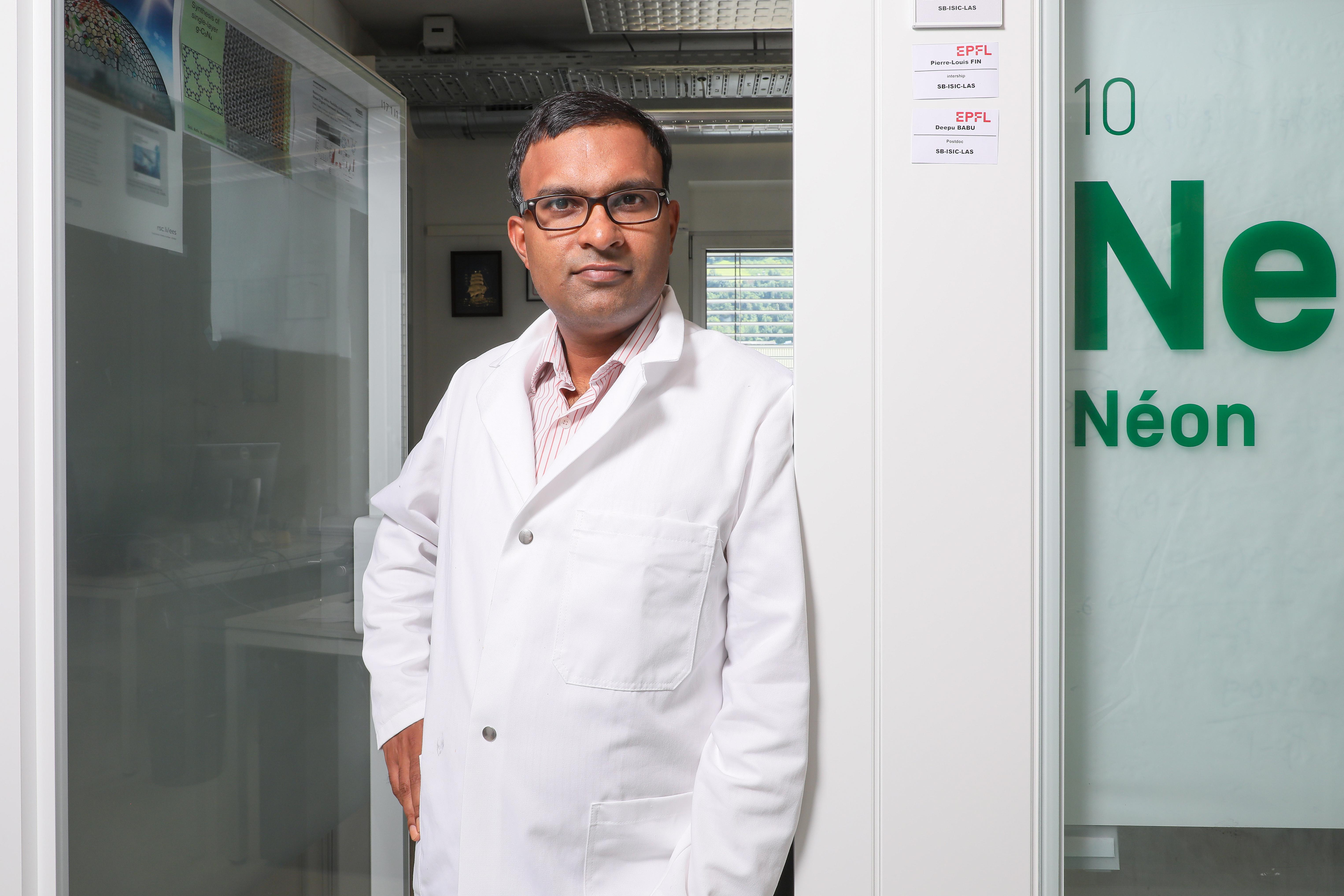
Kumar Varoon Agrawal © 2020 EPFL
Summer series: science as a vocation. Kumar Varoon Agrawal, a tenure-track assistant professor who holds the Gaznat Chair for Advanced Separations at EPFL Valais-Wallis, is developing advanced membranes for the molecular separation of industrial product streams, mainly for CO2 capture.
Sometimes a simple nudge is all we need to find our true calling. For Agrawal, the nudge came from a college professor. "I was in the first year of my Bachelor's degree at the Indian Institute of Technology (IIT) Bombay, and during an introductory course in chemical engineering, my professor said 'There's nothing in this world that cannot be solved scientifically by chemical engineering. No matter the medium - be it air, water, electronics or even space -if you understand the principles of this branch, you can be involved in an infinite number of things and solve all kinds of problems'." That prospect was enough to spark Agrawal's love affair with chemical engineering.
However, his earlier decision to embark on a career in engineering came as no surprise. "I've always enjoyed tinkering and exploring how things work. As a child, I used to take my toys apart and repair them afterwards - to my parents' great misfortune. I remember, for example, spending a lot of time fiddling with electrical wires. A bit like some of the activities that are offered at the EPFL Scientastic Festival," he says. Given that his father is a mechanical engineer and his brother and cousin are engineering students, Agrawal is simply continuing a family tradition.
Chemistry in the kitchen
After graduation, Agrawal worked for three years as an R&D engineer at Procter & Gamble in Japan, including in shampoo design. That's also when he started cooking. "I didn't speak Japanese at the time and, being a vegetarian, I couldn't find food that suited me. So I had to start cooking for myself." What started out as an essential chore quickly turned into a hobby.
Agrawal found that combining ingredients and adjusting cooking times and temperatures was similar to what he does in the lab. "I struggled a lot to make my pizza recipe better, especially because I kept using healthier flour, which makes it challenging to develop a good pizza dough. The goal is to make big air bubbles in the dough so you get a well-blown crust. I thought about it and tried different things," he says. He's now perfected his pizza recipe, but the real satisfaction came from the process of research and continuous improvement. "I'm now trying to make my own bread, but I must admit I still have a lot of room for improvement," he adds.

CO2 capture
At his laboratory in Sion, Agrawal is working on a completely different type of R&D: developing molecular separation systems for industrial product streams. When chemicals are manufactured in a plant, the resulting product stream is rarely pure. It usually contains a mixture of compounds that are similar because they come from the same reagents. And a lot of energy is needed to separate those compounds - some 40% to 80% of the total energy used in the process. Agrawal's membranes will make the separation step easier by filtering individual molecules according to their shape and size.
His team is currently working on a membrane specifically for CO2 capture. They have developed a lab-scale model that will soon be tested on an industrial scale. "We've received funding from industry and from the Valais government to work on this project. At a time of climate change and carbon emission reduction targets, I'm proud to be able to participate in solving such an important problem for society," says Agrawal. "It motivates me enormously."
1984: Born in Lohardaga, Jharkhand, India
2005: Obtained a Bachelor's degree from the Indian Institute of Technology (IIT), Bombay
2005-2008: Worked as an R&D engineer at Procter & Gamble, Kobe, Japan
2013: Earned a PhD from the University of Minnesota
2014: Performed postdoc research at the Massachusetts Institute of Technology (MIT)
2016: Appointed an tenure-track assistant professor at EPFL






